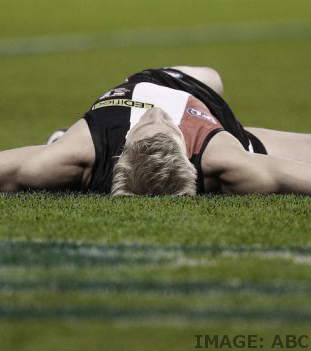Head knock expert speaks on AFL
 While the AFL is taking greater action to prevent concussions, experts say attitudes must change.
While the AFL is taking greater action to prevent concussions, experts say attitudes must change.
Renowned advocate and former pro wrestler turned neuroscientist, Chris Nowinski, has expressed his full support for the AFL's crackdown on head-high bumps and dangerous tackles, while calling for urgent changes to the training and playing methods in football.
This season has witnessed a noticeable increase in suspensions for such incidents, leading to confusion among players and coaches and sparking a public debate about the direction of the game.
Dr Nowinski, who has been a vocal critic of activities that lead to traumatic brain injuries, believes that it will take time for the public to shift their attitudes towards changes aimed at preventing concussions.
He says that both the frequency and intensity of head impacts needs to be addressed in order to protect players.
Having suffered multiple concussions himself, Dr Nowinski retired from sport at the age of 25, which prompted him to dedicate the next two decades to changing the culture surrounding concussions in contact sports.
“After seeing what has happened [not just to] myself but everyone else … it's a big gap we need to fill,” he has told reporters.
Recently, Dr Nowinski contributed to a study on the link between repetitive head blows and chronic traumatic encephalopathy (CTE), a neurodegenerative disease.
The study examined the brains of 631 American footballers and found that the occurrence and severity of head impacts were strong predictors of CTE.
Leveraging these results, Dr Nowinski is advocating for the adoption of a CTE prevention protocol (PDF), which suggests avoiding head contact in training for junior footballers until the age of 14.
Dr Nowinski says there is an urgent need for contact sports like the AFL to change their playing and training methods to minimise head hits and prevent CTE.
He suggested a reinvention of practice sessions without head impacts, stressing the importance of protecting players' long-term well-being.
The AFL is imposing stricter punishments for head-high contact, which some see as recognition of the link between head knocks and CTE.
The league is also facing a series of legal cases about damage from concussions and other head knocks.








 Print
Print